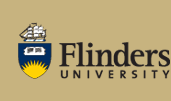
The Bachelor of Education (Early Childhood)/Bachelor of Arts may be taken as a double degree program in four years full-time (or the equivalent part-time). Students who study part-time would normally be expected to complete the double degree program within eight years.
The course is offered by the Faculty of Education, Humanities and Law.
The double degree program of Bachelor of Education (Early Childhood)/Bachelor of Arts requires completion of a total of 144 units.
A Lutheran pathway is available for students wishing to teach in that system (see BEd (ECh)BA Handbook for details). Specialist language education topics are available for those students who wish to teach a language(s).
The minimum requirements for consideration for entry to all undergraduate courses are specified in detail in the University Entry Requirements.
Limited credit may be granted for relevant topics taken at the University or other institutions.
Students who commence, but subsequently do not wish to complete, the double degree program may be eligible to exit with a Bachelor of Arts, but only on completion of 108 units of approved Bachelor of Arts topics.
The course aims to produce graduates who:
It is anticipated that on completion of the double degree program graduate students will:
Limited credit may be granted for recognition of prior studies undertaken at the University or other approved tertiary institutions. Further information is available on this page.
To qualify for the Bachelor of Education (Early Childhood)/Bachelor of Arts, a student must complete 144 units with a grade of P or NGP or better in each topic, according to the following program of study:
The Bachelor of Education component must include:
The Bachelor of Arts component must include:
* The Liberal Arts minor is a set of content topics chosen to ensure that the students have a breadth of content knowledge relevant to teaching in Early Childhood Education.
Except with the permission of the Board:
Students should note that professional experience topics require full-time commitment for their duration.
More specific rules related to majors and minors in the Bachelor of Arts can be referred to in the BA course rule.
LIST OF TOPICS
The BA major and electives may be chosen from topics and topic sequences listed in the BA handbook.
36 units comprising
EDUC1120 Teaching and Educational Contexts (4.5 units)
EDUC1221 Play, Learning and Development (4.5 units)
plus 9 units of BA Major topics
plus 9 units of Liberal Arts Minor topics
plus 9 units of BA Elective topics
36 units comprising
EDUC2321 The Expressive Arts in Early Childhood (4.5 units)
EDUC2420 Teaching Indigenous Australian Students (Liberal Arts Minor topic) (4.5 units)
EDUC2421 Literacy and Numeracy: Birth-4 (4.5 units)
plus 18 units of BA Major topics
plus 4.5 units of Liberal Arts Minor topics
36 units comprising
EDUC3521 Language, Literature and Literacies 4-8 (4.5 units)
EDUC3522 Social Learning and Development (4.5 units)
EDUC3621 Engaged Learners (4.5 units)
EDUC3622 Thinking and Working Mathematically (4.5 units)
EDUC3623 Health and Physical Education in Early Childhood (4.5 units)
EDUC3640 Professional Experience 1: Early Childhood (45 days) (4.5 units)
plus 4.5 units of BA Major topics
plus 4.5 units of Liberal Arts Minor topic (4.5 units)
36 units comprising
EDUC4722 Social and Environmental Education in Early Childhood (4.5 units)
EDUC4723 Investigating Early Years Curriculum and Pedagogy (4.5 units)
EDUC4724 Science and Design Technology in the Early Years (4.5 units)
EDUC4740 Professional Experience 2: Early Childhood (35 days) (4.5 units)
EDUC4820 The Professional Educator (4.5 units)
plus 4.5 units of BA Major topics
plus 4.5 units of BA Elective topics
plus 4.5 units of Education Elelctives
The recommended Bachelor of Arts majors:CRICOS Provider: 00114A | Updated: 25 Nov, 2010